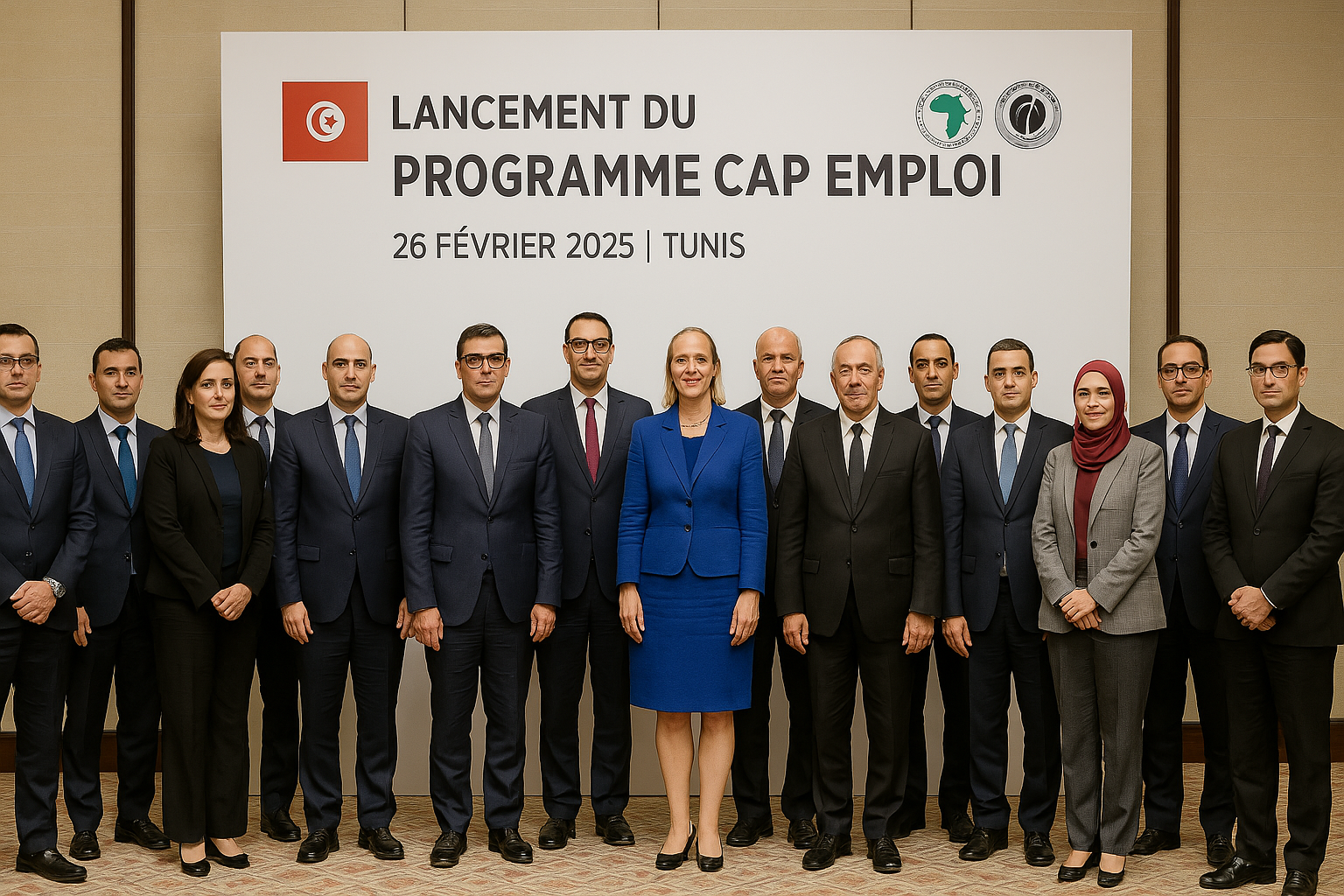Tunisia Launches CAP Emploi to Boost Youth Jobs and Entrepreneurship
At the core of CAP Emploi is a performance-driven approach: funds are disbursed only when specific, measurable results are achieved.

In a pivotal moment for Tunisia’s employment and entrepreneurship landscape, the CAP Emploi programme was officially launched in Tunis during a high-level workshop bringing together around 60 key players from government, private sector, financial institutions, and civil society. The initiative, driven by results-based financing, aims to significantly reduce youth unemployment while fostering entrepreneurship and innovation across the country.
A Strategic Partnership for National Transformation
CAP Emploi, which stands for Compétences, Accompagnement, et Promotion pour l’Emploi, is spearheaded by the Ministry of Employment and Vocational Training, in close collaboration with the African Development Bank (AfDB), the National Agency for Employment and Self-Employment (ANETI), and the Tunisian Solidarity Bank (BTS BANK). The programme’s ambition is clear: create sustainable, quality jobs and empower Tunisia’s youth—particularly women and underserved populations—by improving access to training, finance, and entrepreneurship support.
Financed with €90 million from the African Development Bank and an additional $2.5 million grant from the Affirmative Finance Action for Women in Africa (AFAWA), CAP Emploi is the first programme in Tunisia to operate under a results-based financing model, ensuring that funding is tied directly to tangible outcomes.
A Results-Based Model for Impact
At the core of CAP Emploi is a performance-driven approach: funds are disbursed only when specific, measurable results are achieved. This model promotes accountability, transparency, and efficient use of public and donor funds.
Malinne Blomberg, Country Manager for Tunisia and Deputy Director General of the AfDB for North Africa, highlighted this innovation at the workshop, noting:
“This programme goes beyond traditional development aid. With CAP Emploi, we are investing in the entrepreneurial spirit of Tunisia’s youth and women. The AFAWA grant will help cover BTS BANK’s management fees, thus easing access to finance and incentivising women-led businesses.”
Three Core Pillars Driving Economic Inclusion
CAP Emploi is built on three interconnected pillars designed to address structural weaknesses in the labour market and promote inclusive economic development:
-
Tailored Short-Term Training Responding to private sector demand, this component aligns skills development with market needs. Youth and job seekers will benefit from hands-on training programs co-designed with local businesses, increasing their employability and likelihood of job placement.
-
Entrepreneurial Support and Access to Finance Entrepreneurs—especially those in the informal sector—will receive technical guidance, mentoring, and business support. Zero-interest loans, facilitated through BTS BANK, aim to bridge the financing gap that often prevents youth and women from launching or scaling their businesses. Incentives will also encourage business formalisation, especially under Tunisia’s new auto-entrepreneur status.
-
Institutional Capacity Building and Reform Support CAP Emploi will help modernise employment institutions, streamline entrepreneurship services, and implement policy reforms to better support micro, small, and medium-sized enterprises (MSMEs). This systemic change is expected to have a long-term impact on job creation and economic resilience.
Ambitious Targets: Jobs, Inclusion, and Innovation
Over its lifespan, CAP Emploi is expected to:
-
Create 76,600 direct jobs and nearly 42,300 indirect jobs.
-
Improve the professional integration of thousands of unemployed youth.
-
Promote financial inclusion and women’s economic empowerment.
-
Support the formalisation of informal businesses.
-
Enhance the performance of key employment institutions.
Hatem Dahman, Director General of ANETI, emphasized the collective mission:
“Together, we can build a future where employment is not a constraint, but an opportunity for all. CAP Emploi is a testament to what we can achieve through collaborative action and a commitment to results.”
Aligning with Tunisia’s National Development Vision
Tarek Bouhlel, Director General of African Cooperation at the Ministry of Economy and Planning, stressed the strategic alignment of CAP Emploi with the country’s national goals:
“This programme is fully embedded in Tunisia’s Three-Year Development Plan (2023–2025) and the Sectoral Plan for Employment and Vocational Training. It provides a concrete response to the deep-rooted challenges facing our labour market.”
Tunisia, like many countries in the region, faces a pressing youth unemployment crisis, particularly among university graduates. With an economy in transition and a growing demand for agile, tech-savvy talent, CAP Emploi presents a timely, ambitious, and structured approach to revitalising the job market and boosting entrepreneurial activity.
Looking Ahead: Implementation and Next Steps
The workshop marked the start of the implementation phase of the programme. With strong backing from national and international partners, implementing agencies will now focus on deploying resources, launching pilot projects, and building the technical capacity needed to ensure swift and coordinated action.
CAP Emploi stands as a model of innovative financing, inclusive policy-making, and strategic partnerships. By placing youth and women at the heart of its mission, it represents a bold step toward a more dynamic, equitable, and resilient Tunisia.
- READ MORE ON:
- Tunisia
- CAP Emploi










